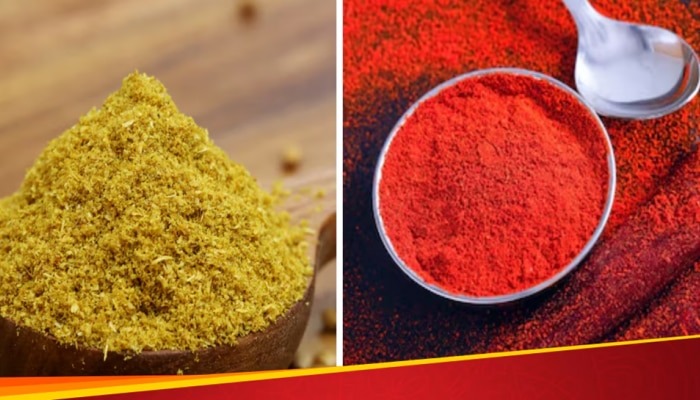
Indian spices not only enhance the taste of food but also provide health benefits like increasing the immunity of our body. In earlier times, spices like turmeric and cumin were ground at home, so there was no scope for adulteration.
But today, due to busy lifestyle and lack of time, most families depend on canned spices instead of homemade spices. In such a situation, the business of adulterated spices is in full swing, because the purity of ground spices cannot be checked easily. In such a situation, if you are taking loose spices instead of branded spices, then measures to detect adulteration can save you from its side effects.
Check the purity of ground spices like this-
Chili powder
To check the purity of red chilli powder, mix one tablespoon of red chilli powder in a glass of water, pure red chilli powder sinks to the bottom of the glass and adulterated chilli starts floating. Similarly, you can also detect adulteration in turmeric powder.
curry chilli
Blackberries and papaya seeds are usually mixed with black pepper. In such a situation, mix black pepper in water to check its purity. Then watch it carefully, only pure black pepper settles at the bottom of the vessel and other contaminants float on the surface of the water.
Asafoetida
Asafoetida is a common spice present in every Indian household and is considered especially beneficial for children. But there may be confusion in this. In such a situation, to check its purity, grind a little asafoetida and dissolve it in water. If asafoetida dissolves in water without leaving any color then it is pure.
coriander powder
Coriander powder is mixed with dry straw and animal dung. In such a situation, if you buy loose coriander powder then put it in a glass jar. If it dissolves completely in water then it is real powder.
Cumin
You can see the cumin seeds by rubbing them between your fingers. If you rub adulterated cumin, your fingers will turn black and pure cumin will not blacken your hands.
 look news india
look news india